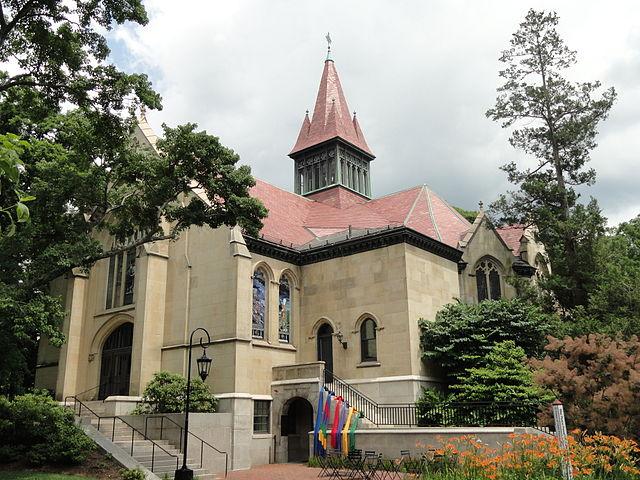Every Thursday, a group of students and religious leaders gather on the chapel’s front lawn for the Multifaith Community’s weekly lunch. Originally called the Multifaith Student Council, the group was founded by Victor Kazanjian, the previous dean of Intercultural Education and Religious and Spiritual Life. He founded the group as part of his “Beyond Tolerance” program, centered around creating genuine religious pluralism at Wellesley.
“[Religious pluralism] is nurturing and celebrating all particular religious traditions and spiritual practices represented … and actively engaging this diversity in ways that build community by exploring the principles that bind us together in a common life,” Kazanjian stated in an interview with Pam Crosby of Character Clearinghouse.
The Council used to be a closed group with two representatives from each faith that met regularly with the Religious Life team. Muslim Chaplain Amira Quraishi, who now leads the group, began to notice that many students felt as if they needed to be all-knowing advocates for their religious community. She also saw an increasing population of students from mixed-faith backgrounds, students who were questioning their religious upbringing and students who didn’t identify with any faith.
“The reality is that everyone asks big questions about life and everyone finds meaning in their life somehow. Under Dean Marquez’s leadership we wanted to see if we could make these really meaningful conversations more accessible to the student population,” Chaplain Quraishi said.
The group now meets weekly and informally, with anyone welcome to join regardless of religious affiliation, lack thereof or previous attendance. This semester, the Multifaith Community is finding holidays from different religious traditions, learning a bit about their meaning and creating a question centered around the meaning to guide that week’s discussion.
Chaplain Quraishi described it as a time to practice “compassionate curiosity,” and she hopes that students will leave these conversations better equipped to ask questions in a respectful and engaged way, and perhaps with more religious knowledge than before. Multifaith Engagement student worker Sylvia Holland ’22, who works alongside Quraishi, elaborated on the significance of these dialogues in their current format.
“I think it’s really important that conversations like this are student-led, because they engage more people. This is not a class, this is us as people bringing our own experiences and sharing them with each other,” Holland said. “I feel as a college student that there are lots of questions I want to take intentional time to explore and ask and to have a group of people who I can do that with is fabulous.”
Beyond these weekly meetings, the Multifaith Community also organizes larger events for the entire campus focused on developing “religious literacy.” In the past, they have held events with students sharing rituals or traditions from their religions, including a presentation on the Pagan holiday of Samhain, which Quraishi notes is often “overshadowed” by Halloween.
In the future, the group hopes to expand their slate of events, including religious diversity training so that students might have a better understanding of the practices and traditions of their peers, and a more complete understanding of the world they live in.
Sara Lucas ’22, another Multifaith Engagement student worker, explained her hope that the multifaith community could become “a framework embedded in the Wellesley experience” and that multifaith understanding would be a core part of the College beyond the classroom. She also emphasized the importance of creating a safe space with purpose.
“We don’t really have space and time carved out in our lives to sit and think about … these questions of ultimate meaning and purpose … until you have a space where you feel you can actively discuss it with people … it doesn’t come up,” Lucas said.
This past Thursday, the group used their created space to discuss the legacy of Buddhist monk Bodhidharma and have a greater conversation surrounding the conveyance of tradition over time. The conversation eventually evolved into questions about a person’s inherent spirituality and the role of acceptance in understanding the historical relevance of problematic practices, which for the Multifaith Community was just another Thursday lunch chat.






